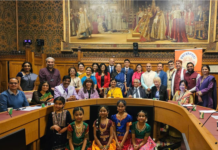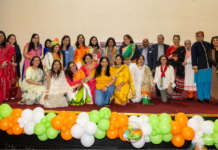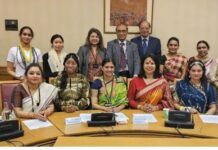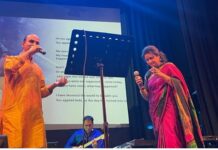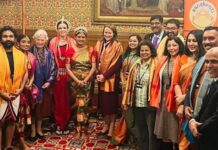A Class 10 student from Tamil Nadu has developed a new technique that can non-invasively detect the risk of a ‘silent heart attack’, an advance that may save many lives in rural areas.
Akash Manoj is staying in Rashtrapati Bhavan as a guest of President Pranab Mukherjee under the Innovation Scholars In-Residence Programme.
He is being honoured with this opportunity for his innovation called “Non-invasive self diagnosis of silent heart attack”.
“Silent heart attacks are extremely deadly and alarmingly common these days. In these cases, almost no symptoms are evident and thus people look so healthy to us,” Manoj said during the Festival of Innovation organised in Rashtrapati Bhavan.
My grandfather also looked healthy but one day he collapsed following a sudden heart attack,” he said.
The incident served as an impetus for Manoj to develop his prototype that was exhibited at Rashtrapati Bhavan.

The technique involves frequently analysing the presence of FABP3 — a blood biomarker of heart attack — without puncturing the skin.
“FABP3 is one of the smallest proteins that can be present in blood, and is charged negatively (so it attracts to positive charges). I used these properties in this technique,” Manoj said.
Manoj’s model consists of a silicone membrane that represents the skin capillaries, and a drop of a solution of proteins albumin and FABP3 to simulate blood.
When a small potential of positive charge is applied to the model, FABP3 accumulates on dermal capillaries, which can then be detected by ultra-violet (UV) quantification, he said.
In this process, UV light is passed through the thin skin in which FABP3 is accumulated and a sensor detects the amount of protein there, based on the how much of the light was absorbed.
The innovation may be helpful for “at-risk” people in rural areas to test their heart’s health on their own, and consult a doctor in time.
Manoj, who wishes to become a cardiologist, wants this technique to be available in rural areas so that people can keep track of their heart’s health and seek timely medical help.

Readers like you, make ESHADOOT work possible. We need your support to deliver quality and positive news about India and Indian diaspora - and to keep it open for everyone. Your support is essential to continue our efforts. Every contribution, however big or small, is so valuable for our future.

